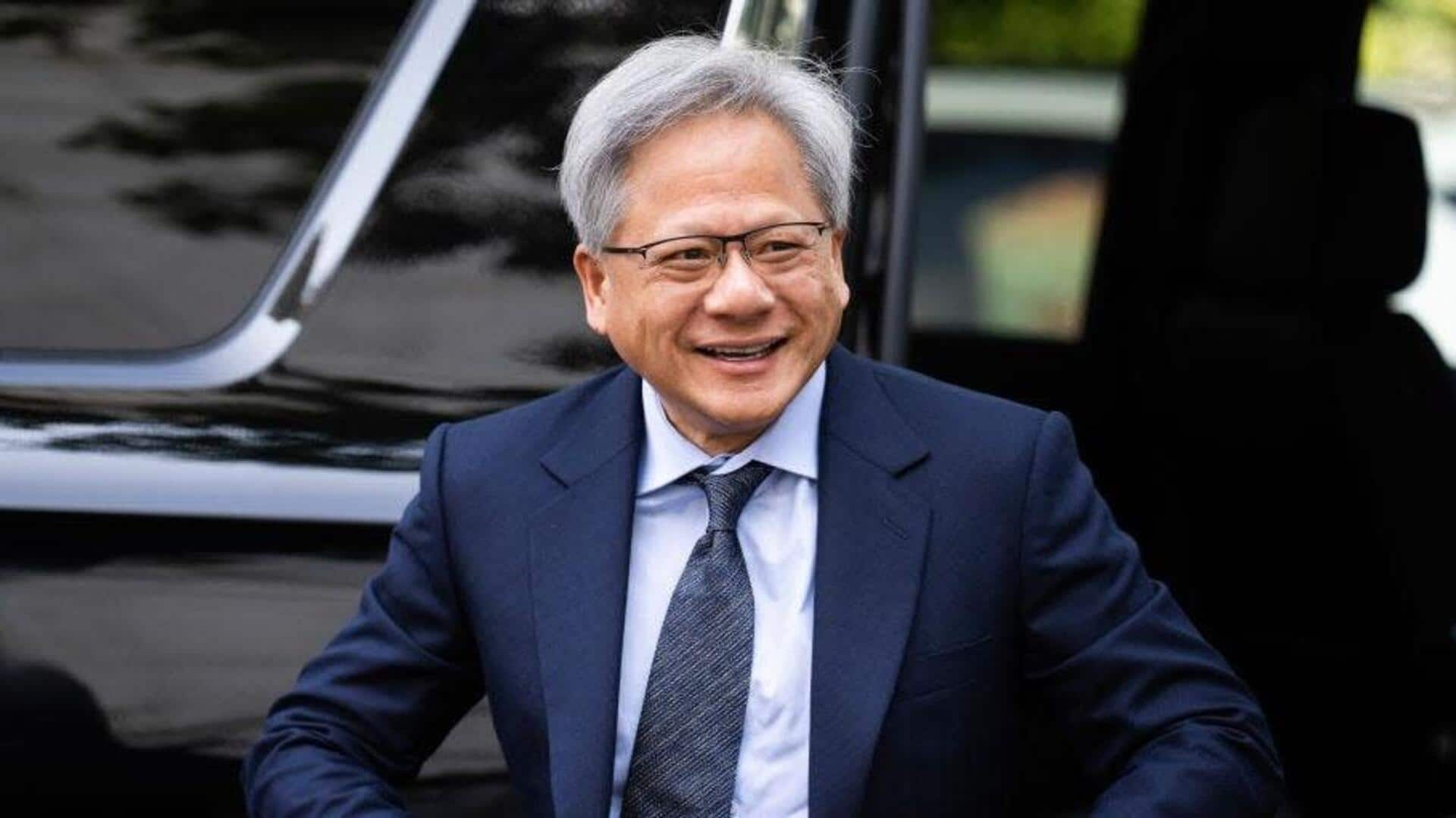
'Anxiety is his fuel': Biographer on NVIDIA CEO Jensen Huang
What's the story
Jensen Huang, the co-founder and CEO of NVIDIA, one of the world's most valuable companies with a market cap of nearly $3.4 trillion, has shared his fears about the future of his company. Despite its immense success, Huang has said he worries that NVIDIA, the company he co-founded in 1993, could implode at any moment. This fear drives him to be one of the most successful CEOs globally.
Motivation
Fear of failure motivates Huang
Huang's fear of failure is a major motivator for him, according to biographer Stephen Witt. In his book "The Thinking Machine," published in January, Witt says, "This is his fuel. This is his gasoline, what makes him go is this anxiety." Witt spent six hours interviewing Huang and his colleagues, as well as employees, for the book. In April 2024, Huang himself talked about his work ethic and drive in the past, saying he works as much as he can.
Emotional drive
Biographer on Huang's mindset
Witt was surprised to learn that Huang's motivation is largely driven by negative emotions. He said, "I think the most surprising thing about Jensen is that he's almost totally driven by negative emotions." This includes a fear of failure, paranoia about competition, and guilt about disappointing others. Despite being a demanding boss who isn't easy to work for, Huang believes stress is the best motivator for extraordinary achievements.
Resilience
Resilience and preparation for potential failure are keys to success
Huang credits his success to his resilience in overcoming setbacks, like NVIDIA's near-collapse just three years after its launch. He told Stanford University students in March 2024 that this resilience is partly due to having "low expectations." He always prepares for potential failure and strategizes ways to avoid an implosion. Huang believes you can't let your anxiety stop you from taking calculated risks.
Innovation
Fear of failure can motivate success when harnessed properly
Huang believes that without a tolerance for failure, one will never experiment and innovate. He said, "If you don't innovate, you don't succeed." Psychologists say the ability to tolerate and learn from failures is common among successful people. While excessive anxiety can affect mental health and decision-making abilities, it can also motivate success when harnessed in healthy ways.